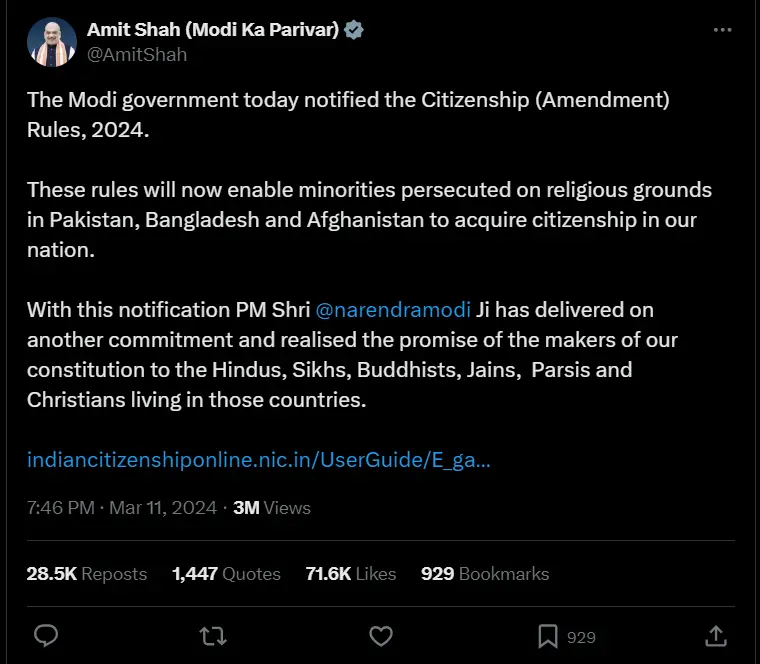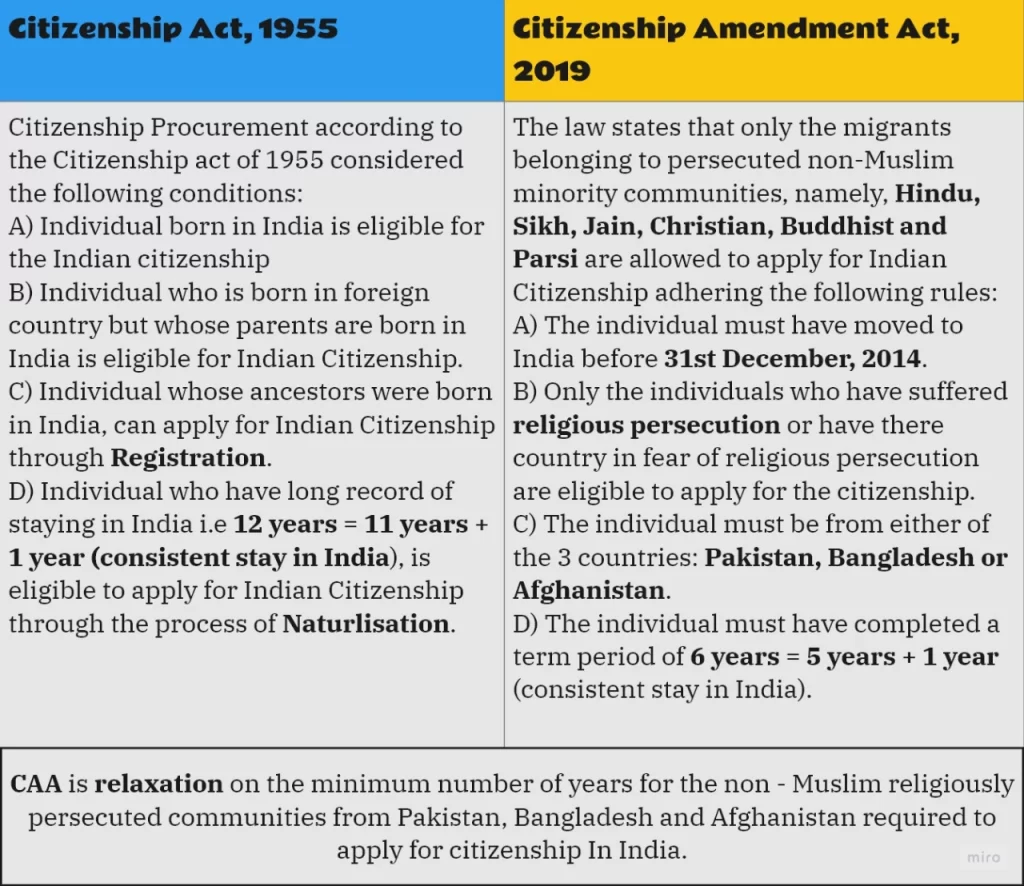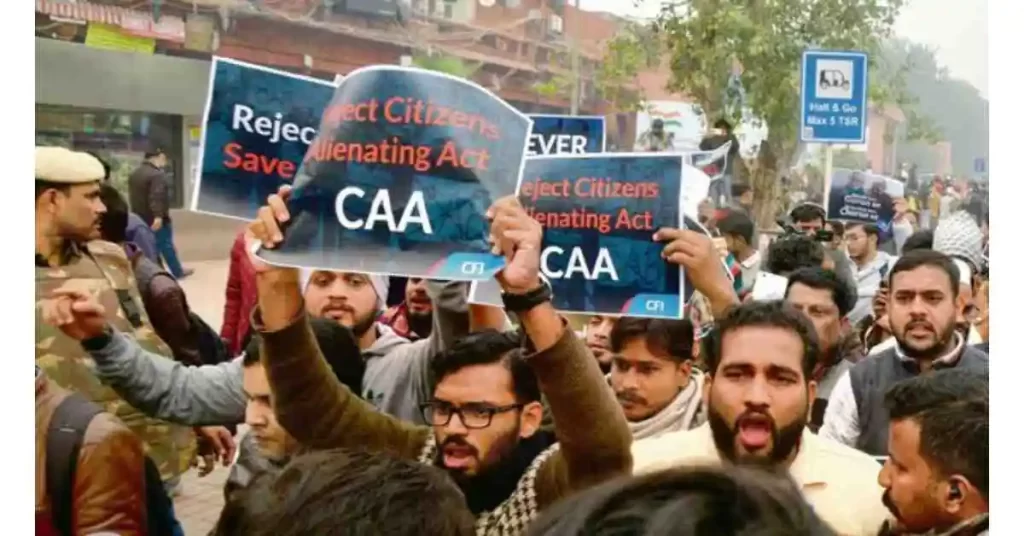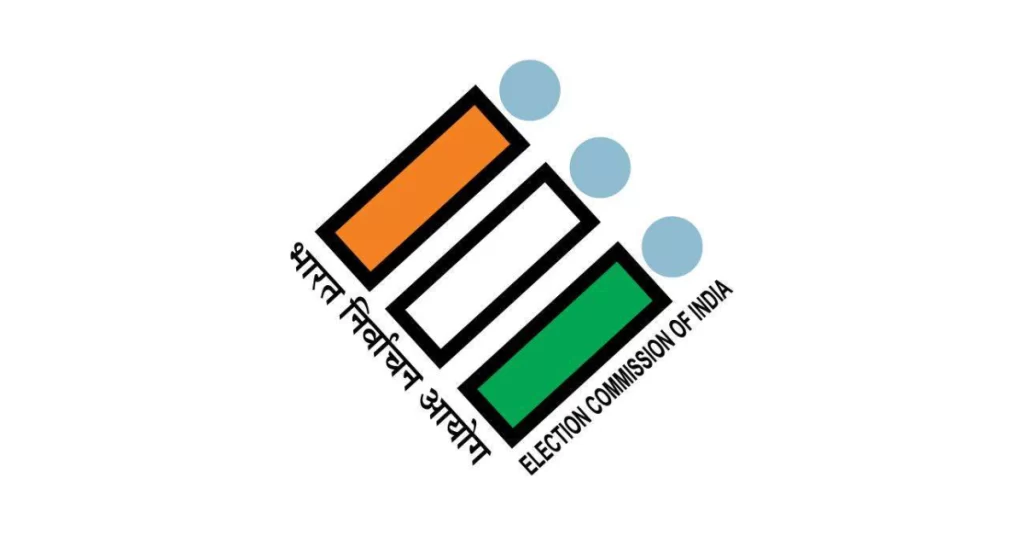Citizenship Amendment Act (2019), popularly known as the CAA, will now be implemented after a long wait of 4 years. Honorable Mr. Amit Shah, Minister of Home affairs tweets about implementation of the Citizenship Act on x.com and notifies about the rules of CAA on behalf of the government.

What is CAA?
The provisions of CAA are an amendment to the Citizenship Act of 1955, which says any foreign nationals who have moved to India without any valid document or valid travel documents will be considered as illegal migrants, unless they have stayed for a long time and have legally applied for citizenship, as per the given rules. While the CAA is a law that grants fastrack citizenship to the persecuted minorities from Pakistan, Bangladesh and Afghanistan. These minorities include Hindu, Sikh, Jain, Christian, Buddhist and Parsi communities, who migrated to India before December 31st, 2014. The Act is very specific about granting Citizenship to only the non – Muslim communities from only Pakistan, Bangladesh and Afghanistan.
Legislative history of CAA
The bill was first introduced by the BJP Government in 2016, which stated that non-muslims from Pakistan, Bangladesh and Afghanistan would be eligible for Indian Citizenship. The bill was passed in the lower house of parliament, that is Lok Sabha, but was held up in Rajya Sabha, considering widespread political opposition and protests in northeast India.
On December 4, 2019, following the formation of the 17th Lok Sabha, the Union Cabinet approved the Citizenship (Amendment) Bill, 2019, allowing it to be introduced in the legislature. Despite attempts by the opposition to filibuster the measure, the Minister of Home Affairs, Amit Shah, introduced it in the 17th Lok Sabha on December 9, 2019, and it was passed at midnight on December 10, 2019, with 311 MPs voting in favor and 80 against. With 125 votes in favor and 105 against, the bill was approved by the Rajya Sabha on December 11, 2019. On December 12, 2019, the Indian President granted the bill his assent, making it an act. On January 10, 2020, the act became operative. On December 20, 2019, Pakistani refugees were granted citizenship certificates by Union Minister Mansukh Mandaviya, signaling the start of the CAA’s implementation.

Why are Muslims excluded from the benefits of this Act?
Soon as the bill was presented in the parliament, large scale protests broke out against the government. The protestors said that this bill is breaching the fundamentals of Article 14, which is the basis for equal rights to all Indian Citizens. The protestors demanded an indiscriminate version of the Act, where Muslims facing religious persecution should also be granted similar rights as that of the non – Muslim communities. The Indian government stated that it is “unlikely” that Muslims will “face religious persecution” in Pakistan, Afghanistan, or Bangladesh because Islam is the official religion of those countries.
“So, foreign migrant Muslims will never get to apply for Indian Citizenship?”. According to the Citizenship Act of 1955, Muslims or rather any non – Indian individual can apply for Indian Citizenship abiding the rules of naturalisation or registration.
Delay in implementing the Act:
After the Honorable Home Minister of India Mr. Amit Shah, tweeted about implementation of the CAA, there has been a lot of criticism from the opposition. The opposition leaders say that the Act was passed 4 years ago, but is purposefully implemented right before elections as an agenda to gain more votes. If the government had been serious about this Act, they would have done it long back.
The government replies back to this criticism by stating that the term of 4 years was necessary for the government to frame associated rules. In these 4 years the Ministry of Home Affairs was actively pursuing the goal of implementing the law.
How to apply? Who will scrutinize the applications?
An official from the Ministry of Home Affairs has confirmed that the entire process of acquisition of citizenship will be facilitated via a web portal, making it a digital application process. Applicants are required to disclose their year of entry in India, without the need of any travel documentation.
Authorities to confer Indian Citizenship to eligible individuals from Pakistan, Bangladesh and Afghanistan includes District Magistrates and Home Secretaries across 9 states.
As of now sensitive regions like West Bengal and Assam have not been granted any authorities to verify and grant citizenship yet. Additionally, the implementation of NRC is still on hold.
- Abhijeet Koltharkar




